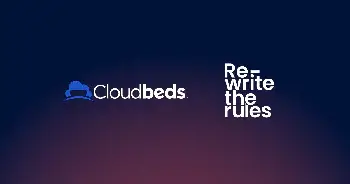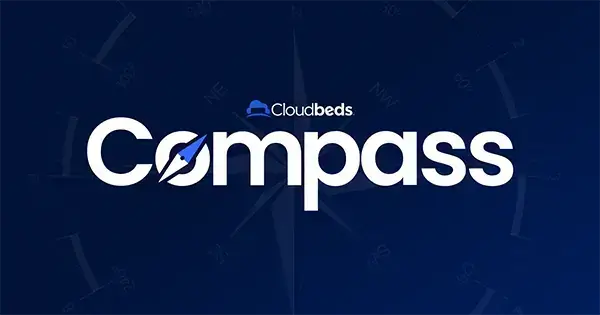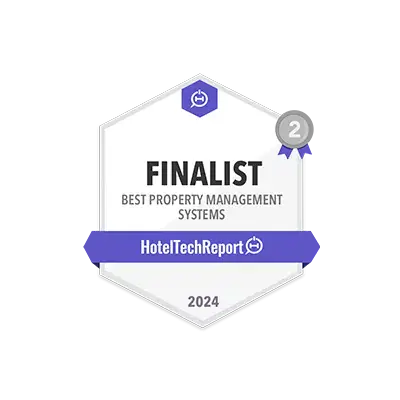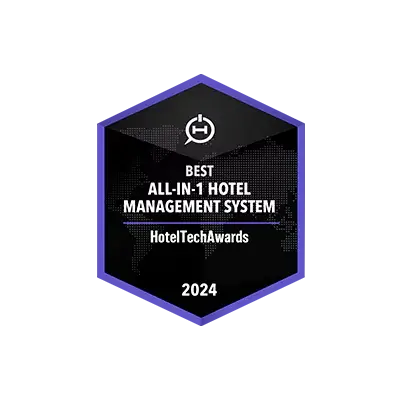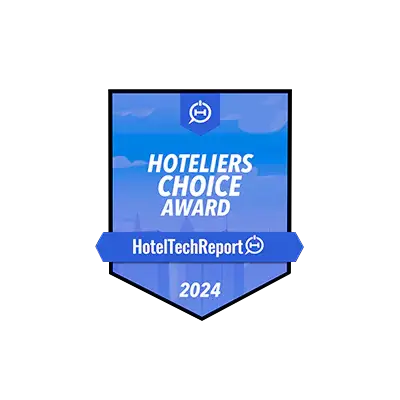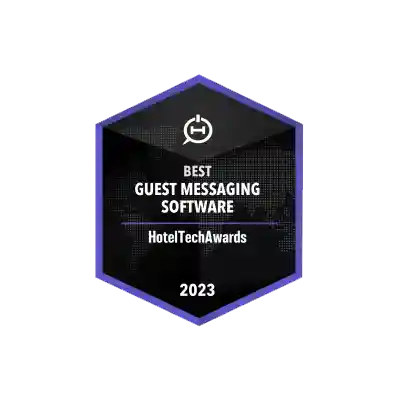12 revenue management strategies
from leading hospitality experts
Revenue management has always been a complex discipline for lodging operators, and things aren’t getting any easier. Today, in addition to the usual challenges related to managing pricing and inventory, the hotel industry faces shifting travel patterns, inflationary pressures, and economic uncertainty.
To make matters more challenging, smaller, independent properties often don’t have the luxury of a dedicated revenue manager. To compete with large, branded hotels that do have that advantage, operators must juggle revenue management with other duties. Add recent labor shortages to the mix, and that means serious multitasking.
Therefore, hoteliers must take a highly strategic approach to revenue growth and higher profitability this year and beyond. To help guide lodging operators, we asked a few of our revenue management integration partners to share their strategies, best practices, and predictions for the future.
Why is revenue management so important?
“The practice of revenue management is by far the most impactful thing hoteliers can do for their profitability,” said Thomas Landen, Chief Marketing Officer at RoomPriceGenie. “Adjusting your price based on demand will significantly benefit your bottom line. And this additional generated revenue can be used to improve your hotel, add services, or hire more staff.”
During Cloudbeds’ 2023 Passport User Conference, Gino Engels, Co-founder and Chief Customer Officer at Lighthouse (formerly OTA Insight) shared his view on the rising importance of revenue management and how strategies have shifted over the past few years.
6 strategies to boost hotel revenue
Hotel revenue management involves managing room pricing and inventory for revenue optimization while at the same time managing guest acquisition costs to maximize profitability.
“At Duetto, we believe that the only effective way to manage your business is to base your decisions on revenue,” said Chris Crowley, Chief Revenue Officer at Duetto. “Everything should start from inventory and revenue strategy – whether that’s commercial strategy, technology stack, marketing strategy, staffing, recruitment, profitability, or customer loyalty.”
So, there are a lot of elements at play. To narrow things down, here are six key revenue management strategies to consider.
1. Practice dynamic pricing
Dynamic pricing is the practice of flexing room rates based on supply and demand. This means increasing rates when demand is high to boost the average daily rate (ADR) and lowering rates when demand is low to boost occupancy. In either scenario, dynamic pricing strategies will help increase important metrics like overall revenue and occupancy rates.
“Hotels can no longer rely on fixed pricing models to deliver consistent and reliable volumes across their hotel real estate,” said Chris of Duetto. “Dynamic pricing and rate flexibility have become essential, not just for the hotel, but also to attract the new breed of engaged traveler.” He said that acting quickly to change pricing in response to changes in demand is also crucial. “In a world where everything happens in an instant, a lack of speed can kill profit.”
2. Set length of stay restrictions
Optimizing inventory management through stay restrictions (also called inventory controls) is another key element of a successful revenue strategy. Like dynamic pricing, stay restrictions should be tightened when demand is high and loosened when demand is low to maximize occupancy.
For example, if you sell out easily on Saturday nights but not on Fridays or Sundays, closing Saturday nights for arrival or implementing a two-night minimum stay will help leverage that excess demand to boost occupancy on shoulder nights.
3. Strive for a diverse business mix
Rather than over-rely on a few types of guests, maintain a balanced business mix by targeting different customers, including leisure, corporate, group, and social. And don’t overlook the rising segment of so-called blended travelers who mix business and leisure on the same trip.
Different traveler types have different stay patterns, and a healthy customer base will help you achieve a more consistently high level of occupancy throughout the week and over the course of the year. Short-term booking windows are predicted to remain, something that Chris identified as both a challenge and an opportunity. He said that “short-term booking windows remain, and this will continue to challenge hotel teams, both operationally and from a revenue perspective. However, a short-term booking window represents an opportunity to connect with a more mobile, more astute, and engaged traveler, switching seamlessly between business and leisure profiles.”
4. Manage multiple booking channels
Maintaining a diverse distribution strategy will attract a more balanced business mix. This means loading room inventory and rates on multiple distribution channels, including various OTAs, the GDS, wholesalers, bed banks, metasearch engines, social media sites, and your website. Ensure you maintain a healthy mix of third-party and direct bookings to reduce reliance on just one revenue stream and improve your hotel’s performance.
A channel manager and booking engine can make this process much easier by allowing you to manage inventory, price changes, and availability across channels. Invest in digital marketing strategies such as metasearch advertising, SEO best practices, and optimized business listings to drive more direct bookings.
5. Oversell your room inventory
Overselling available rooms can be a scary proposition, but it’s an important strategy to maximize occupancy and achieve those elusive perfect fills. By selling more rooms than you have available on a given night, you can help avoid being left with empty rooms due to cancellations and no-shows.
Be cautious and vigilant, however, or you risk overbookings – an unpleasant experience for travelers and staff alike. Limit your exposure by overselling based on cancellation and no-show patterns, reducing levels as the arrival date approaches.
6. Use revenue management technology
Given the complexities of revenue management today, it’s virtually impossible to do it efficiently without the help of technology. Revenue management systems (RMS) can help hoteliers save time, improve data-driven decision-making, and increase revenue opportunities by automatically gathering and sorting real-time data analytics, managing inventory and pricing, and compiling reports. Adam Harris, CEO of Cloudbeds, said, “While revenue management technology used to be reserved for the big brands, thanks to developments in machine learning, automation, and AI, the field is becoming far more accessible for all lodging operators.”
6 best practices for effective revenue management
Best practices are approaches to solving problems that have been proven to deliver the most favorable results. Here are six best practices for a successful revenue management strategy.
1. Define your revenue management strategies
When resources are limited, it’s crucial to stay focused. Thomas of RoomPriceGenie recommended prioritizing three areas of revenue strategy:
- Increase the difference between your minimum and maximum prices. Increasing your maximum pricing allows you to fluctuate your room rates more and gives you greater flexibility to adjust rates during high demand.
- Be alert to the signs of revenue opportunities. For example, excellent Tripadvisor ratings or frequently selling out all your rooms may be signs you are pricing your rooms too low. Also, if you’re fully booked too soon, that’s an early indicator that you may need to charge more for your hotel rooms.
- Experiment with packages. Bundling your rooms with offers like spa services, bike rentals, activities, or other offerings is a great way to increase your overall revenue.
2. Develop revenue strategies by market segment
Hotel market segmentation is the grouping of hotel guests into categories based on customer behavior and characteristics. Common market segments include transient, corporate negotiated, group, and wholesale.
When guests are divided into market segments, hotels can be more targeted and personalized in their promotions, pricing, and communications. Based on your customer segments, determine what upsell (ancillary revenue) opportunities make the most sense for your hotel business to increase total revenue and improve the guest experience.
3. Understand guest booking and stay patterns
Knowing your customers is another vital practice in effective revenue management. This comes from paying close attention to guest booking and stay patterns and monitoring guest feedback in online reviews and guest surveys. When hotel management knows their ideal guests’ booking preferences and price sensitivity, they have a much clearer idea of the offers, pricing, and booking conditions to reach the right customer and improve retention.
Nancy Huang, Director of Marketing Communications at Cloudbeds, said in a recent webinar that “understanding stay patterns is a key step to developing an advanced revenue management strategy. Knowing what days demand might be higher or lower not only helps with daily rate setting but helps you develop effective rate plans and packages. For example, offering a stay 4 nights pay 3 deal can help you increase demand for shoulder nights and reduce the cost of room turnover.”
4. Monitor competitor pricing behavior
Travelers check out your competitors when shopping for accommodations, and so should you. Monitoring competitor pricing will help you decide what different prices to charge, when to increase or decrease rates, and when to tighten or loosen stay restrictions to capture the optimal business for your property. Define your comp set by choosing 3-5 competitors to track.
Whether you want to be a price leader or follower, a pricing intelligence engine can help by monitoring competitor pricing on your behalf, automating pricing adjustments, or prompting you to adjust them manually to meet customer demand.
5. Conduct data analysis and produce demand forecasts
Adam of Cloudbeds said, “You can’t win at what you don’t measure, and to be successful, hoteliers must make decisions based on the data that accurately measures the success of their properties.” You can anticipate business flows by tracking key performance indicators (KPIs) like RevPAR, GOPPAR, and TRevPAR and by creating monthly forecasts of future demand. Ensure that you analyze historical data, market conditions, booking trends, market trends, and seasonal variations, then factor in future-looking data like economic forecasts and upcoming conferences and events. Use this data to create day-by-day projections of room demand and average rate.
Forecasts will help you plan for ups and downs in demand and implement appropriate pricing, planning, and inventory controls. However, be careful to account for previous disruptions to travel patterns that aren’t likely to recur in the near future (like the pandemic, or so we hope).
6. Invest in staff training and development
Keep up to date with the latest trends and best practices in revenue management through ongoing education, whether it’s conferences, webinars, and courses or self-guided learning through articles and guides.
“Start your revenue education today!” Thomas recommended. “There is so much great content about hotel revenue management, so getting up to speed on the topic is easy.” He recommended the following resources:
And don’t forget Cloudbeds University, where lodging operators have unlimited access to 100+ training videos on-demand.
The future of revenue management & how hoteliers can prepare
Looking ahead, we asked our experts how they predict revenue management will change in the hospitality industry over the next three to five years and how hoteliers can start to prepare.
“The most significant change for hoteliers is that revenue management and revenue management software will be accessible and practiced by (almost) all hotels,” said Thomas of RoomPriceGenie. “Previously, only a few hotels practiced revenue management because it was complicated and the technology was expensive. This is rapidly changing since newer systems are easier to use and less costly.”
He added, “In the next couple of years, this trend will continue, and revenue management software will become the standard, just like a PMS and a channel manager. With this, the competitive advantage of hotels using revenue management software will lessen. So better start now to get a head start.”
Said Chris of Duetto, “2022 was a year when we saw a significant move to cloud-based technology, and 2023 will be another year of increased tech adoption as hotels continue to look for ways to drive efficiency, boost profitability, and adapt to the challenges of the year ahead. Demand will continue to be variable, and as such, we will need to adopt very flexible pricing models, especially in the high-volume hub city destinations.”
He added, “Hotels need to look beyond the booking engine and start considering wider demand intelligence, such as how upcoming events (sports, concerts, conventions, etc.) may boost demand, and, on the flip side, be aware of how other external factors, such as severe weather, may change the demand curve. If you measure it, you can manage it.”

